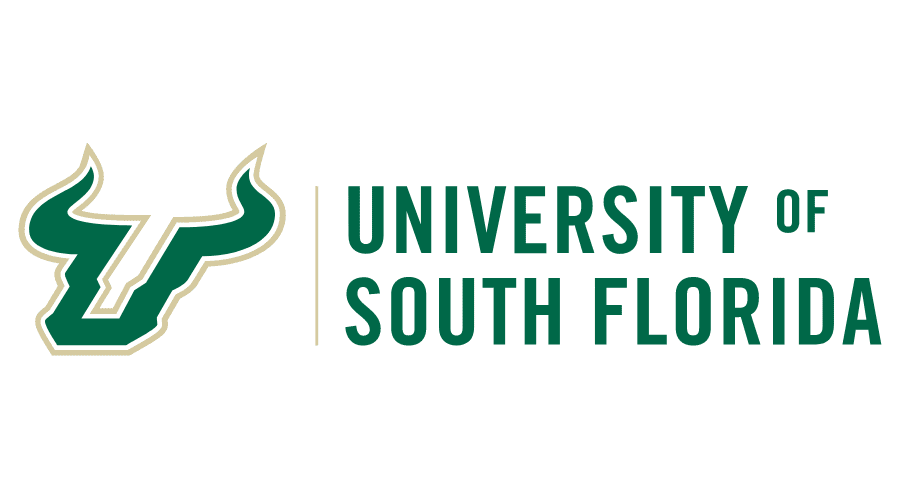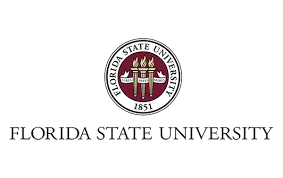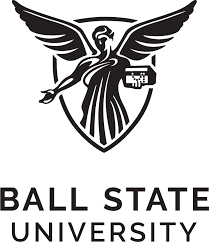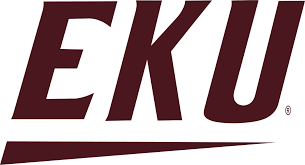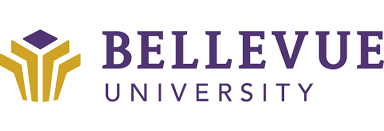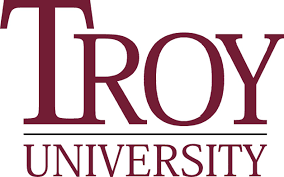Justice, security, and law enforcement build strong foundations for a functioning society. A degree from one of these accredited online colleges for criminal justice is the first step if you hope to make a difference in your community.
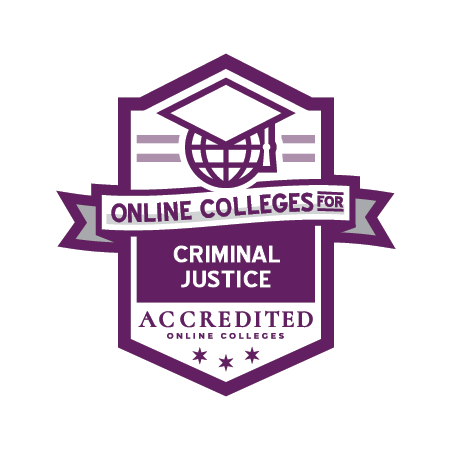
Ensuring justice and the punishment and rehabilitation of those breaking the law is essential to maintaining peace in our society. This underscores the importance of people like you who want to pursue an accredited online criminal justice degree. What better feeling could there be than knowing that every time you lay your head down at night, you were part of the system that improves safety, protects victims of crime, and liberates the wrongly accused?
What Will I Learn in Accredited Criminal Justice Programs Online?
You’re probably not alone if you’re curious about what the criminal justice field entails. The field is broad and encompasses many sub-fields. But they all share one common goal – ensuring that justice is served to those that have committed crimes.
Aside from general education requirements like math, science, and the humanities, a lot of what you’ll learn in an online accredited criminal justice degree is the structure of the criminal justice system. This includes examining civil and criminal courts, juvenile courts, and alternative adjudications, like drug courts.
You’ll also dive more deeply into why people commit crimes. In addition to criminal law, you’ll study methods for rehabilitating and integrating the accused back into society. You can think of the subjects above as the backbone and foundation of the house of justice. But you may have opportunities to explore many other areas of criminal justice.
For example, some specialized areas of criminal justice you might explore include forensic psychology, forensic science, or homeland security. White-collar crime, international justice, and cybersecurity are other options.
Many of the programs on this list also require that you complete an internship. The value of an internship cannot be understated. You’ll gain real-life experience in how the criminal justice system works by applying your classroom learning in a real-world setting. This allows you to translate the theories you learn into practical knowledge you can draw upon in your criminal justice career.
See Also: 16 Best Online Colleges in Forensic Psychology
What are the Best Accredited Criminal Justice Degree Online Programs?
Accredited Online College uses the most recent data from the Department of Education’s National Center for Education Statistics to rank the online colleges with criminal justice programs below.
Each program has an individual score. That score is compared to scores from all other universities offering that degree to determine the final score you see by each ranking.
Accredited Online College considers several factors for this ranking, including the program’s affordability, student-to-faculty ratio, and the number of programs offered on-campus and online. Needless to say, this methodology renders much more reliable and insightful information than simply Googling “criminal justice online degrees accredited or criminal justice degree online accredited.”
To learn more, visit our methodology page.
See Also: 10 Tips for Maximizing Your Learning Experience in Online College
1. Liberty University
At the top of our list of accredited online criminal justice degrees is this Bachelor of Science in criminal justice from Liberty University.
This is one of the best online degrees in this field. Whether you’re already working in criminal justice or just beginning your studies in the field, this degree gives you the tools and confidence to gain a deeper understanding and appreciation for this subject.
This BS in criminal justice is a 120-credit hour program that will take you around 3.5 years to complete. You’ll learn skills like:
- Crisis response strategies
- Criminal justice leadership techniques
- Public policy skills
- Procedural recordkeeping
You can also choose a specialization. You can concentrate on business administration and management, corrections and human services, or crime scene investigation. Criminal psychology, homeland security, and juvenile justice are also available, among others.
Classes are in an accelerated eight-week format, so you learn and earn your degree faster. What’s more, this program is entirely online, so you don’t have to worry about visiting Liberty’s campus in Lynchburg, Virginia.
See Also: Financial Aid Tips for Online College
2. Florida International University
The primary focus of the Bachelor of Science in Criminal Justice from Florida International University is teaching you a solid foundation on which you can build your future criminal justice career. FIU does this by starting at the beginning when you’re required to take an Introduction to Criminal Justice class.
From that point on, you’ll move through progressively more difficult classes. For example, you’ll take classes in the following:
- Criminological Theory
- Professional Development in Criminal Justice
- Research Methods and Analyses in Criminal Justice
- Criminal Justice and the Constitution
You finish the program with a senior capstone project that requires you to formulate an in-depth analysis of crime and how public policy seeks to address crime.
While the core criminal justice curriculum consists of 18 credit hours, you can focus your studies on aspects of criminal justice you find of particular interest through another 18 credit hours of upper-division electives.
Furthermore, if you’re interested in pursuing a combined bachelor’s/master’s in criminal justice, you can apply to FIU’s program once you have earned 75 credit hours at the bachelor’s level. Enrollment in this program allows you to earn up to 12 credit hours that apply toward your master’s degree while earning your bachelor’s.
3. Washington State University
The Bachelor of Arts in Criminal Justice and Criminology from Washington State University is a degree designed to make the world a better place. How? By providing students like you with a well-rounded education!
As a WSU student, you’ll enhance your understanding of the criminal justice system, develop the ability to think critically, and gain leadership skills that enable you to lead the charge in criminal justice reform. WSU’s criminal justice program dates back to the 1940s, so you can be sure the curriculum and the faculty that teach it are well-informed.
The criminal justice core curriculum in this degree program consists of 18 credit hours of coursework in which you’ll take classes like:
- Introduction to the Administration of Criminal Justice
- Introduction to Criminological Theory
- Research Methods for Criminal Justice
- Criminal Law
- Quantitative Methods for Criminal Justice
You’ll also participate in a criminal justice capstone as a summative assessment before you graduate.
A criminal justice internship might be in your future, too. You can gain valuable real-world experience to supplement what you learn in class. This is an elective component, though, so it is not required for graduation.
4. Pennsylvania State University- World Campus
If you’re looking for an online bachelor’s degree taught by the same professors that teach the school’s on-campus classes, look no further than Penn State University’s Bachelor of Science in Criminal Justice program.
With the same professors teaching your class and the same degree granted as your on-campus cohorts, the only thing that distinguishes this online degree from the traditional program is the flexibility it provides you! You’ll have the flexibility to study when you want, all from the comfort of your own home.
This 120-credit hour program takes about four years to complete. You’ll take courses like Policing in America, Research Methods in Criminal Justice, and Criminology. Topics like criminal justice research, ethics, and the prosecutorial process are also part of the curriculum.
If you want to enhance your resume, consider pursuing a homeland-security minor. This minor consists of 18 credit hours and provides the knowledge you need to be effective in a security-focused position in government or the private sector.
Penn State offers financial assistance for all students, though military members and veterans benefit from a tuition discount. You can learn more about Penn State’s military grants and scholarships here.
5. Arizona State University
If you’re certain you’ll go on to pursue a master’s degree in criminal justice, you may want to take a look at Arizona State University’s 4+1 accelerated program option.
This program allows you to complete your undergraduate degree and a Master of Arts or Master of Science degree in just five years. This five-year option eliminates a year from what it would normally take to earn these degrees individually.
This accelerated program focuses your studies on critical areas of criminal justice. This includes:
- Criminology
- Research methods
- Policy analysis
- Program evaluation
- Program planning and management
To apply to the 4+1 accelerated program option, you must first complete at least 75 credits in your undergraduate program. This includes taking a research methods course and a statistics course. Moreover, you need to maintain a cumulative GPA of 3.40 or higher.
Arizona State is still an excellent choice if you’re just interested in the Bachelor of Science program in Criminology and Criminal Justice. You must complete 40 classes (120 credits) to graduate. Each class is about 7.5 weeks long, enabling you to concentrate on one specific area at a time.
6. Missouri State University
Problem-solving skills, the ability to think outside the box, and effective communication are some attributes that make for a successful career in criminal justice. The Bachelor of Science in Criminology and Criminal Justice from Missouri State University-Springfield was developed with these skills in mind.
If you think about it, these skills are what make for success in most industries, so you’ll be gaining a skill set that will be useful wherever you end up. However, being able to think quickly on your feet is an attribute you’ll need when working in the criminal justice field.
As a student at Missouri State, you can specialize your studies with a certificate. You can choose from the following:
- Criminal investigation
- Terrorism and national security
- Conservation of law enforcement
- Criminal courts
- Family and juvenile support services
- Victim advocacy
Missouri State also has a master’s program in criminal justice that takes as little as 1.5 years to complete and enables you to continue your studies once your undergraduate program is complete.
7. University of South Florida
If you’ve already earned an Associate of Science degree, the Bachelor of Science in Applied Science with a concentration in criminal justice from the University of South Florida is for you.
Whether you plan to continue your education in a graduate program or want to pursue professional advancement, this degree teaches you everything you need to succeed.
The criminal justice core curriculum consists of two required classes: Theories of Criminal Behavior and Survey of the Criminal Justice System. You must also select five upper-level criminal justice courses as electives for a total of 21 credits in the criminal justice concentration.
Additionally, USF offers many opportunities for you to conduct undergraduate research. You can explore a criminal justice topic of your choice and gain valuable insight into specific areas of this field. Additionally, you can get feedback from your professors that helps you cultivate your understanding and deepen your research.
You must maintain a cumulative GPA of 2.0 throughout your studies at USF. If accepted into this program, you can expect to walk down the aisle with your diploma two years after enrollment, provided you take 15 credit hours of coursework per semester and USF accepts 60 credits from your associate’s degree program.
8. University of Oklahoma-Norman Campus
If you aspire to work for a law enforcement agency, the University of Oklahoma’s Bachelor of Science in Criminal Justice might be a good fit.
This program aims to teach you the ins and outs of our criminal justice system on multiple levels. Moreover, you’ll develop an understanding of topics like conflict resolution, ethics, and social control.
Once admitted to the program, you pair up with an advisor who helps create your graduation plan. This plan details your criminal justice studies and accommodates your other commitments. Your program of study will be specifically for you, whether you’re a first-time college student, an older student who wishes to continue working as you complete your studies, or something in between.
To graduate, you must complete all 120 course credits. Courses are in an accelerated eight-week format and include:
- Comparative Justice Systems
- American Judicial Processes
- Cyberspace Security
- Human Trafficking
- Introduction to Forensic Science/Criminalistics
There are three minors available as well. These include Criminal Justice, Restorative Justice, and Criminal Investigation and Intelligence Analysis.
9. Sam Houston State University
Sam Houston State University’s bachelor’s degree in criminal justice stands out from the crowd. It’s one of the oldest and most prestigious programs in the United States.
This four-year degree is available online, or you can study on campus. You’ll benefit from learning from experts in the field who provide greater insights due to their first-hand experience working in criminal justice.
The program is 120 credit hours and includes a variety of courses. You’ll take classes on cybercrime, victimology, and ethics. Other classes might include:
- Child abuse and neglect
- Global terrorism
- White-collar investigation
- Correctional systems and practices
- Criminal justice and social diversity
With this variety of core and elective classes, the program is well-rounded. Additionally, start times are available in fall, spring, and summer to give you greater flexibility to complete your degree.
Online students like you can complete this program as a Bachelor of Science or a Bachelor of Arts. As a science degree, social sciences courses are required. As an arts degree, classes in a world language are part of the curriculum.
10. Florida State University
This bachelor’s degree in criminology from Florida State University can be completed entirely online. The flexible online format accommodates your work and life obligations. It also enables you to work at your own pace. The degree awarded is equivalent to that of the one earned by on-campus students.
This program focuses on helping you build your critical thinking skills and ability to solve complex problems. Graduates often go on to pursue work as a child welfare caseworker, crime intelligence analyst, or detective. Other career options might include private investigator, social services case manager and others (e.g., paralegal, criminal justice public policy analyst). This program is also geared toward those who wish to pursue law school or other graduate degree programs.
You must complete 36 credit hours in criminology and have a C-average to graduate. To apply to this program, you must already have an Associate of Arts degree or complete the liberal arts requirements of the program.
11. University of Cincinnati- Main Campus
The online degree in criminal justice from the University of Cincinnati blends sociology, psychology, history, and political science. This multidisciplinary approach helps you gain skills in critical thinking and understanding human behavior in the context of law enforcement. Both entry-level and advanced positions in criminal justice are achievable with this degree. Career paths include various roles in criminal justice settings, from policy reform to advocacy to law enforcement.
U.S. News & World Report has repeatedly ranked this program among the top criminal justice schools. As such, you can expect to gain detailed knowledge in multiple aspects of criminal justice, including:
- Introduction to Courts
- Criminology
- Criminal Punishment
- Politics of Criminal Justice
- Race, Class, and Crime
The program consists of 120 credit hours, and there are start times in spring, summer, and fall for increased flexibility.
A cumulative 2.7 GPA in high school is required to apply for the program. Applicants from other areas of study who wish to transfer into this program must have a 2.0 GPA average from all other courses.
12. Ball State University
At 12th on our list of accredited colleges for criminal justice is Ball State University. With its fully online degree in criminal justice and criminology, Ball State allows you to continue working in your current career. Likewise, you can advance your knowledge of the criminal justice system while earning a bachelor’s degree.
This program was designed for students interested in careers in community corrections, law enforcement, asset protection, or other law-related fields (e.g., probation officers). It stands out for its emphasis on data-driven decision-making, ethics, and cultural competency. Another highlight of this program is that classes are asynchronous, so you can work around your daily schedule.
This degree includes 120 credit hours. There are start dates in the spring, summer, and fall. You’ll take courses that might include the following:
- Research Methods in Criminal Justice
- Criminal Law
- Race, Gender, and Crime
- Juvenile Justice and Delinquency
- Constitutional Issues in Criminal Justice
You might get credit for your service if you have a military background. You can also test out of some requirements by taking College Level Examination Program tests. In both cases, this helps reduce the total credit count you need for graduation.
If you wish to apply, be advised that after submitting an application, the review period can take 3-4 weeks.
13. National University
National University is the largest private, nonprofit university in San Diego. The main focus of its online Bachelor of Science in Criminal Justice Administration is to provide you with a comprehensive understanding of the policies and practices of our criminal justice system.
This program covers the criminal justice system at the local, regional, and federal levels. Additionally, you’ll explore many topics, such as patterns of juvenile delinquency, criminal sanctions concerning victims and offenders, and leadership and management styles.
You might also take courses like:
- Criminal Law and Procedure
- Criminal Evidence
- Crime and the Media
- Criminology
- Courts and the Judicial Process
Whether you’re a professional in the law enforcement field seeking to advance your career or a first-year student just beginning your path of study, this program is well-suited for you.
The professors are experts in the criminal justice area and offer real-world knowledge to prepare you to think critically, analyze information, and implement laws in the court system, law enforcement, and corrections positions.
14. Colorado State University
Colorado State University’s Bachelor of Science in criminal justice curriculum revolves around practical and real-world skills needed to be a leader in multiple areas of law enforcement. This program also emphasizes how to make informed decisions within the context of law and order, as well as how to operate within effective systems of law enforcement.
You can take many different criminal justice-related courses. These include, but are not limited to:
- Law Enforcement and American Policing
- Ethics for the Criminal Justice Professional
- Laws of Evidence
- Research Methods for the Criminal Justice Professional
- Applying Leadership Principles
Upon completing this 120-credit program, you can pursue a career in crime analysis, victim advocacy, or child protective services. Jobs in border security, cybercrime prevention, and court administration are additional options. Job opportunities are available at both the local and federal levels, too, so there are plenty of avenues you can take after graduation.
15. Eastern Kentucky University
Eastern Kentucky University’s criminal justice bachelor’s degree prepares you for a career in law enforcement, the courts, social service agencies, and the correctional system. After completing this undergraduate degree, you may also pursue law school or another graduate program.
U.S. News & World Report ranks Eastern Kentucky University’s criminal justice program among the top in the nation. And at 15th on our list, EKU is a top program according to our metrics as well!
You can start this fully online program multiple times during the year, which allows you to work within your existing schedule. Plus, you have an academic advisor who remains in contact with you throughout your program and even after graduation to ensure you’re on the right career path.
This is a 120-credit program. You’ll take courses in the following:
- Perspectives on Crime and Delinquency
- Rural Crime and Justice
- White Collar Crime/Crimes of the Powerful
- Criminal Justice Ethics
You can choose from various minors to tailor your education to your specific areas of interest as well. For example, you can minor in Police Studies, Homeland Security, or Psychology.
Common career paths for graduates of this program include police officers, sheriffs, and social and human services assistants. You might also work as a correctional officer or bailiff.
16. Bellevue University
Bellevue University’s Bachelor of Science in Criminal Justice empowers you with the knowledge and skills necessary for a successful career in law enforcement, corrections, and the courts. The curriculum focuses on policy development, legal and ethical principles, and contemporary social issues.
You’ll take various courses, including the following:
- Criminal Law, Evidence, and Constitutional Procedure
- Ethics and Values in Criminal Justice
- Punishment and Criminal Sanctions
- Delinquency and the Juvenile Justice System
- Crime Theory and Causes
This program requires that you complete 127 credit hours. This includes 36 credits of major courses and 54 elective credits, which allows you to customize your learning to suit your interests. You must also complete nine credits as part of the Kilpatrick Signature Series requirements. These courses include the following:
- American Vision and Values
- Tradition and Change
- Freedom and Responsibility
Although this program is online, it still offers a sense of hands-on learning through case studies, policy analysis, and real-world critical thinking activities.
17. University of Central Florida
U.S. News & World Report ranks the University of Central Florida as one of the most innovative schools, a top performer for social mobility, and an excellent school for veterans. With that kind of accolades, it’s no wonder so many students choose UCF for their higher education.
UCF’s bachelor’s degree in criminal justice is offered as a bachelor of arts or a bachelor of science degree. Both paths focus on the ins and outs of our criminal justice system. Likewise, you’ll learn about the history of crime in the United States, policing methods, victim advocacy, and much more.
Career paths are available at the federal or local level for graduates of this program. You can pursue employment as a corrections officer, an FBI agent, or a law enforcement officer. And while your training is entirely online, there are case studies and interactive training that prepare you for real-world experience in law enforcement in the United States.
This program requires you to complete 120 credits to graduate. While many students go on to work in law-related fields after graduation, this program also prepares you for law school or other graduate studies.
18. Southern Illinois University
Southern Illinois University is nationally and internationally recognized as a leading research facility. Its online Bachelor of Arts in Criminology and Criminal Justice offers the flexibility of completing coursework at your own pace while earning a degree from a prestigious institution.
The content of this program is identical to the in-person program. The same professors also teach it as the on-campus program. You can begin your studies during multiple start dates offered throughout the year in the spring, fall, and summer, making this a flexible option for completing your degree.
Of the 120 credits required for graduation, 39 are general education courses like math, science, and history. Forty-two credits are required within the major, and another 39 credits of electives are needed.
Core courses include the following:
- Introduction to Criminal Justice Administration
- Introduction to Criminal Law
- Drug Abuse and the Criminal Justice System
- Law and Social Control
The available electives allow you to pursue your individual interests. For example, you might take elective courses in victimology, criminology, or white-collar crime.
19. Saint Leo University
The criminal justice bachelor’s degree offered by Saint Leo University is ideal if you’re motivated to work within law enforcement, help solve crimes, and support creating safer communities. The professors you’ll learn from include people with ample experience working as crime scene investigators, federal agents, and chief deputies.
The focus of this program is to prepare you with the real-world skills needed for a variety of positions. Upon graduation, you might become a sheriff’s deputy, a negotiator, or work on policy creation at the regional and federal levels. To help prepare you for these and other criminal justice careers, you’ll explore topics related to:
- Criminal justice ethics
- Policing procedures
- Court procedures
- Victimology
You can also specialize your studies in criminalistics or homeland security within the 120-credit hour program.
Saint Leo University partners with the FBI National Academy Associates. The school has been ranked by G.I. Jobs and Military Advanced Education magazines as one of the most military-friendly schools in the United States.
20. Central Methodist University
The online criminal justice degree program at Central Methodist University includes training for multiple aspects of criminal justice – from investigation to law and policy creation to the social aspects of criminal deviance. The wide scope of topics makes this program well-suited for a variety of career paths within law enforcement.
The program is offered as a Bachelor of Arts or a Bachelor of Science. In both tracks, you’ll take courses in:
- Criminal Procedure
- Social Deviance
- Constitutional Aspects of Criminal Justice
- Research Design and Data Analysis
- Criminal Law
You should possess listening, empathy, and flexibility skills, as these are necessary for success in the program. You’ll gain many more skills in this program, including critical thinking, conflict resolution, and ethics within law enforcement.
Admission requirements include completing a college prep program with a 2.5 GPA average and an ACT score of 18 or higher or an SAT score of 960 or higher. Alternatively, a 2250 GED score is also acceptable.
21. Troy University
Whether you choose to major or minor in criminal justice at Troy University, you’re sure to gain knowledge that will go far beyond foundational concepts to genuine insight into current problems in the justice system. The major in criminal justice comprises 15 credit hours of major coursework and another 21 credits of electives in the major area. This includes classes such as:
- Survey of Law Enforcement
- Careers in Criminal Justice
- Constitutional Law
- Survey of Corrections
- Criminology
In working toward a bachelor’s degree, you can minor in homeland security or digital forensics, which you can use toward a Master of Science in criminal justice. To be eligible for enrollment in the BS/MS accelerated program, you must have a 3.4 GPA when you reach 90 credit hours of earned coursework toward your bachelor’s degree.
Additionally, Troy offers an accelerated law option that enables you to get your bachelor’s degree and your law degree in just six years. That program is a good option if you foresee your future as an attorney.
22. University of Nebraska at Omaha
The School of Criminology and Criminal Justice at the University of Nebraska Omaha has a Bachelor of Science in Criminology and Criminal Justice. This program is yet another excellent option for working criminal justice professionals like you who want to earn or finish a bachelor’s degree.
The program is straightforward to apply to if you happen to be a University of Nebraska Kearney or University of Nebraska Lincoln student, as the school works closely with both educational institutions.
The criminology and criminal justice major consists of 43 credit hours of specific coursework to provide a broad and detailed understanding of criminology and criminal justice. Online courses include:
- The Criminal Court System
- Applied Statistics and Data Processing in the Public Sector
- Women, Crime, and Justice
- Police and Society
- Community-Based Corrections
You will also take six credit hours of writing and research-based classes. Doing so will help you develop the ability to think critically and communicate clearly, two vital skills for those working in the justice system.
23. Southern New Hampshire University
As one of the country’s largest providers of online learning, Southern New Hampshire University has the tools and resources to help you complete your undergraduate studies in criminal justice.
SNHU’s Bachelor of Science in Criminal Justice is a typical 120-credit program that takes about four years to complete. However, if you’ve already completed coursework at another accredited university, you can transfer up to 90 credits to SNHU, which can help reduce the number of courses you have to take to finish your degree.
SNHU offers many different courses to help you build a complete set of skills in criminal justice. The school also offers multiple concentration areas to help you hone specific skills in an area of interest. These specializations include:
- Corrections
- Criminology and Crime Analysis
- Cybercrime
- Homeland Security and Counterterrorism
- Human Services and Advocacy
- Police Administration & Operations
- Security Management
- Substance Abuse
This program has no set class times to maximize flexibility. You also get 24/7 access to course materials and learning resources so you can learn on a schedule that best fits your lifestyle.
24. University of South Dakota
The University of South Dakota’s Bachelor of Arts and Bachelor of Science in Criminal Justice gives you the experience of collaborating with professionals from the criminal justice system and closely allied agencies. USD recognizes that justice requires a team effort and that students and graduates have to be team players in the system.
USD offers various options for completing your degree. As noted above, you can pursue bachelor’s programs in Arts or Sciences. Likewise, you can major in another field and minor in criminal justice.
Both bachelor’s degrees are four-year programs requiring 120 credits to graduate. Of those credits, 18 are in the major area, and another 15 are major area electives. If you like, you can double major by completing another degree program and adding at least 33 credits of criminal justice courses. Psychology, social work, and human services are just a few double major options that go well with criminal justice.
This bachelor’s degree also prepares you to continue your education in a graduate program. Additionally, you’ll get hands-on criminal justice experience that is beneficial for continuing your education or entering the workforce, all at low tuition rates.
25. University of Toledo
The Bachelor of Science in Criminal Justice from the University of Toledo focuses on teaching you a holistic perspective of crime. You will learn how criminal justice agencies work together to tackle the national crime problem. You’ll also explore crime and the issues associated with illegal activity across the lifespan.
Since this is a large university, you’ll have access to a wide variety of criminal justice classes. This includes college credit in the following:
- Criminal Law
- Criminal Procedure
- Ethics in Criminal Justice
- Applied Criminology
- Penology
This criminal justice major includes 13 core classes designed to give you a foundation of understanding in criminology and a solid education of research methods. Some courses can only be taken as a junior or senior, so you’ll have to work closely with your academic advisor to ensure you take the right classes at the right time.
You will also select 12 credit hours of criminal justice elective coursework to complete your major. These classes focus on specific criminal justice topics like narcotics, sex crimes, and terrorism.
26. Western Carolina University
North Carolina residents will find the $13,937 total cost of West Carolina University’s Bachelor of Science in Criminal Justice program hard to beat in terms of value.
The program has relatively rigorous admission requirements. An earned associate degree and one year of criminal justice experience are expected from program applicants. The one year of criminal justice employment will make many recent associate degree graduates ineligible for the program.
The criminal justice core curriculum consists of 16 credit hours of courses, including:
- Introduction to Criminology and Criminal Justice
- Majoring in Criminology and Criminal Justice
- Research Methods for Criminology and Criminal Justice
- Theories of Crime
- Statistical Analysis for Criminology and Criminal Justice
You must also participate in a senior seminar that explores detailed criminal justice topics.
As a distance learning student, you can also focus your studies on an administration of justice concentration. This 18-credit set of courses includes an exploration of social justice, criminal justice management, and criminal procedure, to name a few.
27. Park University
You will find their ideal degree at Park University if you’re looking for a liberal arts education combined with practical information and skills that apply to a criminal justice career.
Park University offers three Bachelor of Science programs, a certificate program, and a minor in criminal justice. With that kind of selection, you can tailor your educational experience to your specific needs and career goals.
If you work toward your bachelor’s degree in criminal justice, you can choose from three concentrations: law enforcement, corrections, or security. Park University works closely with local and federal criminal justice departments to provide you with top-notch internship experiences regardless of the track you choose.
If you’re already well on your way to an undergraduate degree in another field, you can add a criminal justice minor. The minor requires 18 hours of criminal justice coursework, which you can do in two semesters of study.
And if you want to extend your learning beyond undergraduate courses, you can enroll in Park’s Graduate Certificate Program in Criminal Justice. This program requires just 12 credits, which you can complete in one semester of study.
28. University of Alaska Fairbanks
The University of Alaska Fairbanks offers a Bachelor of Arts in Justice. This program is unique because it’s specifically designed for students in the Pacific Northwest. For example, you’ll take coursework that explores problem-solving and addressing Native American issues in the criminal justice system. You’ll also learn about the challenges often encountered with rural justice and how the tribal justice system operates.
This degree comprises 120 credit hours, which takes about four years to complete. The justice major includes eight core classes, including:
- Rural Justice in Alaska
- Criminology
- Introduction to Justice
- Juvenile Delinquency
- Principles of Corrections
You will finish this program by completing an internship, conducting research, or completing a capstone project. In each case, you’ll have to apply what you’ve learned in the program and demonstrate a deep understanding of critical criminal justice issues.
When you break down the cost of this program, you’ll find that it has affordable tuition rates. Based on 2023 tuition rates, you’ll pay around $43,300 for the entire program.
29. University of North Texas
At the University of North Texas, you can major in criminal justice and get your undergraduate degree entirely online without stepping foot on campus – or in Texas, for that matter.
This 120-credit-hour program includes 40 courses, including nine courses in the criminal justice major area. You can take classes in:
- Criminology
- Diversity Issues
- Police Systems
- Criminal Justice Research Methods
- Correctional Systems
- Criminal Law
UNT’s criminal justice curriculum is broad-based, meaning you’ll learn many different aspects of the field. You’ll explore empirical components of criminal justice as well as criminal justice theory and the application of those theories in real-world settings.
When you graduate, you’ll have a solid foundation of knowledge and skills that can lead you to graduate school or many different career paths. You might become a law enforcement officer, a probation agent, or an intelligence analyst, to name but a few possibilities.
30. Mississippi College
If you want a criminal justice degree in Homeland Security, you’ll want to check out the bachelor’s degree offered by Mississippi College.
As part of this degree program, you’re required to take the following:
- Introduction to Criminal Justice
- Introduction to Homeland Security
- Introduction to Emergency Management
- American Constitutional Development I and II or Arrest, Search, and Seizure and Criminal Investigation.
After taking these classes, you can select 15 credit hours of elective coursework to round out your degree program. These courses range from Legal Aspects of Homeland Security to Domestic Terrorism.
To round out the requirements for this major, you’re encouraged to take Abnormal Psychology and Non-Verbal Communication courses. However, you can substitute other classes for these with approval from the criminal justice program director.
Gaining knowledge of homeland security is useful in a variety of careers. This includes jobs in local law enforcement, intelligence analysis for federal agencies, or policymaking by non-profit criminal justice organizations.
Frequently Asked Questions
What Kind of Jobs Can I Get With an Accredited Criminal Justice Degree?
There are many different kinds of jobs you can pursue with a degree in criminal justice. The kind of job and the pay depends on many factors. For example, your level of education, the type of organization you work for, and the number of years of work experience all greatly influence your salary. The good news is that there is a job that fits almost any kind of personality type.
Let’s break down the possible career opportunities based on your education level.
If you decide that an associate degree is as far as you want to go, at least right now, you may want to consider becoming a police detective, an immigration and customs inspector, or a criminal investigator and special agent. These jobs are hands-on and require the identification and apprehension of suspected criminals. The expected salary for jobs in this category is surprisingly high at greater than $83,000 per year, according to the Bureau of Labor Statistics (BLS). The high pay is probably because of the high-risk nature of these occupations.
Suppose you decide to go two years further in your education and get a bachelor’s degree in criminal justice. In that case, you might consider a career as an intelligence analyst, adjudicator, or social worker. These careers require that you analyze situations, objectively assess data, and problem-solve. The pay can vary widely if you choose a bachelor’s degree-level job in criminal justice. For example, bachelor’s-level social workers earn around $61,000 per year. Adjudicators, on the other hand, can earn well over $100,000 per year.
IIf you’re willing to put the time and effort into getting a master’s degree, you might qualify to become a licensed clinical social worker, licensed professional counselor, or criminal justice and law enforcement teacher. Jobs at the master’s degree level require that you learn criminal justice theories and apply those theories to real situations. These programs can be long – two or three years of full-time study beyond your bachelor’s degree.
As a master’s-level worker, you might expect to earn around $71,000-$85,000 per year as a licensed clinical social worker. A similar pay band can be expected if you work as a licensed professional counselor.
The top of the educational pyramid is the doctoral degree. If you get a doctorate in the criminal justice field and become an attorney, your income potential can be pretty high. Judges, magistrates, and lawyers operate at various levels of the law ranging from common law courts all the way up to the Supreme Court. Judges and lawyers are among the highest paid in this field, with median salaries ranging between $128,000 and $150,000 per year.
What Requirements Do I Need to Meet to Apply for a Criminal Justice Degree Program?
Like the pay and the types of jobs you can get after graduation, the admission requirements to criminal justice programs vary depending on the level of education. If you want to apply to an associate degree program, you will likely start the application process by submitting proof that you completed high school or its equivalent.
If you’re a first-time college student, the school may also require you to take the ACT or SAT and submit your scores. Some schools require that you submit an essay, which gives the admission team insight into your thinking style and your ability to write clearly and concisely.
If you’ve completed coursework at another college, your school will also want official transcripts from each school you’ve attended. Submitting official transcripts enables your new school to evaluate transfer credits while also determining your academic standing and verifying your prior academic performance.
If you want to apply to a bachelor’s degree program, you’ll have to submit most of the same materials as those discussed above. Some schools may require you to participate in a live or virtual interview before admitting you into their program. These interviews are opportunities for the school to gauge your motivations and fit with their particular program.
Admission to master’s and Ph.D. programs is highly competitive and often requires you to submit letters of recommendation, a purpose statement, and participate in live or virtual interviews. Letters of recommendation give admissions committees insight into who you are as a person and as a student. A purpose statement is often another requirement because of the rigor of these programs and the dedication it requires to complete these degrees. The schools want to ensure that you have considered the sacrifices necessary to complete the degree.
In some cases, you might also need to submit a resume or curriculum vitae when applying to a master’s or doctoral program. Some programs prefer that applicants have research experience, work experience, or both as well.
If you’re interested in pursuing higher education, check out 30 Accredited Psychology Programs Online and Easiest Master Degree Online Programs.







